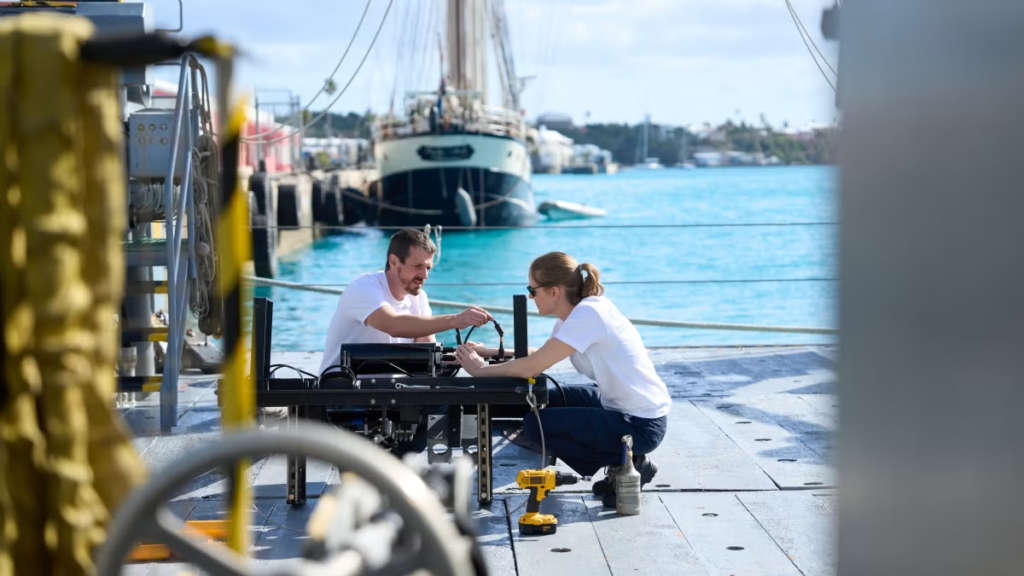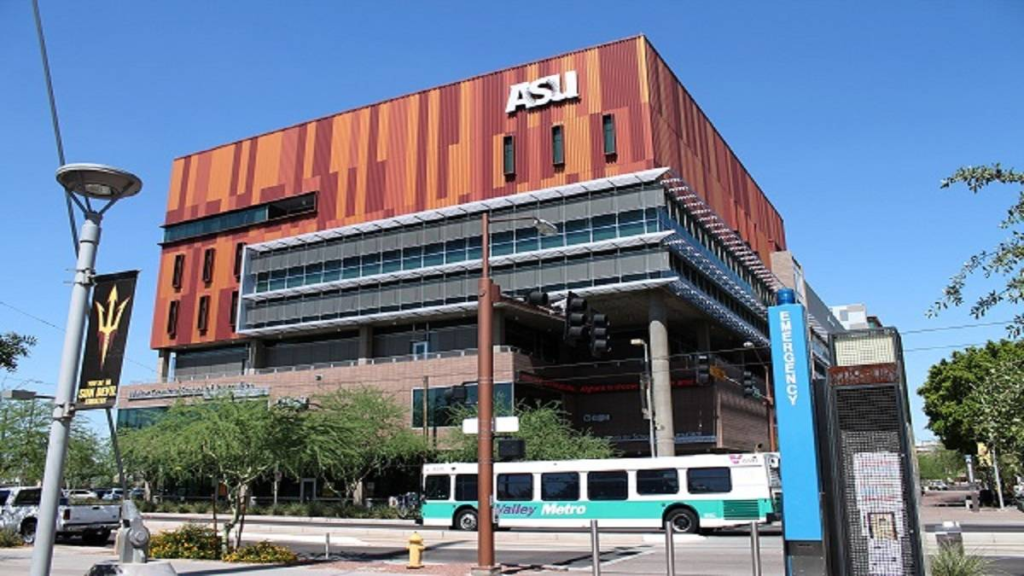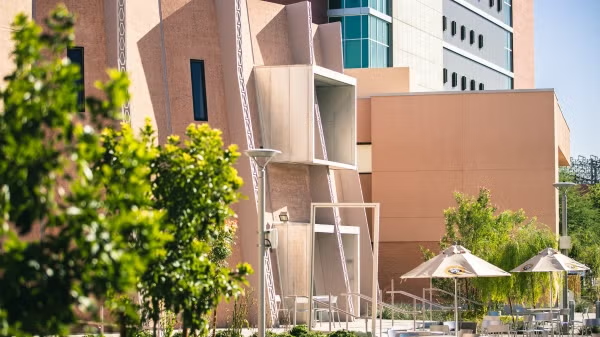Arizona State University (ASU) has once again been recognized as the top U.S. university for its impact on the United Nations Sustainable Development Goals (SDGs), according to the Times Higher Education Impact Rankings 2025. This marks the fourth consecutive year that ASU has led the nation in this prestigious ranking, which evaluates universities worldwide on their commitment to sustainability, social progress, and global responsibility.
What Are the UN Sustainable Development Goals?

The United Nations introduced the 17 Sustainable Development Goals in 2015 as part of its 2030 Agenda for Sustainable Development. These goals aim to solve global issues such as poverty, inequality, climate change, and access to quality education and healthcare. Universities across the world are increasingly being evaluated not just on academic performance, but also on how well they align with and advance these SDGs.
Read more about the UN SDGs here
ASU’s Global Leadership in Sustainability
ASU earned a global rank of #4 overall out of more than 1,900 institutions from 125 countries and territories. In the U.S., ASU stood out as the #1 university in advancing progress toward the SDGs. This achievement showcases the university’s continued commitment to addressing real-world problems through research, innovation, and community engagement.
In 2025, ASU ranked in the top 10 worldwide in 10 of the 17 individual SDG categories, including:
- SDG 1: No Poverty
- SDG 3: Good Health and Well-being
- SDG 4: Quality Education
- SDG 5: Gender Equality
- SDG 7: Affordable and Clean Energy
- SDG 13: Climate Action
- SDG 17: Partnerships for the Goals
Explore ASU’s sustainability programs
A Model for Higher Education Institutions
ASU’s approach goes beyond traditional education. The university actively works with governments, industries, and non-profit organizations to develop sustainable solutions to global challenges. Its model emphasizes interdisciplinary collaboration, real-world problem-solving, and inclusive access to knowledge.
For example, ASU’s Julie Ann Wrigley Global Futures Laboratory plays a key role in climate action and resilience planning. The university also launched multiple initiatives like the Global Carbon Removal Partnership, aiming to remove millions of metric tons of CO₂ from the atmosphere annually.
Learn more about the Global Futures Laboratory
Focus on Inclusion and Equity
ASU’s commitment to equity is another major reason for its high ranking. The university has expanded educational access through online learning, scholarships, and support for underserved communities. Its programs are designed to break down barriers related to income, race, geography, and gender.

One of its major successes includes partnerships with tribal nations, offering tailored educational support and promoting Indigenous knowledge systems in academia.
ASU’s Notable Programs Driving UN SDG Impact
- Solar Power and Renewable Energy Research
ASU has significantly advanced clean energy solutions through its Solar Power Laboratory and partnership with energy providers across the Southwest. These efforts directly contribute to SDG 7 (Affordable and Clean Energy) and SDG 13 (Climate Action). - Water Sustainability
Through its Kyl Center for Water Policy, ASU helps shape water governance in arid regions, aligning with SDG 6 (Clean Water and Sanitation). - Sustainable Cities
The Urban Climate Research Center focuses on making cities more resilient to heatwaves and climate change, pushing progress on SDG 11 (Sustainable Cities and Communities).
The Power of Partnerships
A significant part of ASU’s impact stems from its global partnerships. The university collaborates with organizations like the World Economic Forum, the United Nations, NASA, and multiple public-private alliances focused on sustainability.
Its membership in the University Global Coalition—a group committed to implementing the SDGs across higher education—strengthens its influence in shaping global educational policy and sustainable practices.
More about University Global Coalition
Leadership Comments
ASU President Michael M. Crow expressed pride in the university’s continued recognition, stating:
“This ranking confirms that ASU is not just an academic institution, but a global partner in solving society’s most complex challenges. We are redefining the role of universities in the 21st century.”
Student and Faculty Involvement
One of ASU’s defining strengths is how it empowers students and faculty to contribute to the SDGs. Thousands of students participate in sustainability-focused research projects, internships, and field programs annually. Courses across disciplines—from engineering and urban planning to business and social sciences—embed SDG principles into the curriculum.

Faculty at ASU are also known for high-impact research. ASU ranks among the top institutions in the U.S. for research spending in sustainability sciences.
Why It Matters for the U.S. and the World
ASU’s leadership in sustainability isn’t just about rankings—it reflects a deeper shift in how universities approach education, community service, and global responsibility. At a time when climate change, inequality, and public health crises threaten global stability, ASU is proving that institutions of higher education can and should be part of the solution.
ASU’s performance sets a benchmark for how universities can align their missions with global development goals and measure their success not just by graduation rates, but by their impact on humanity and the planet.
Final Thoughts
In a world increasingly defined by urgent environmental and social challenges, Arizona State University’s consistent leadership in advancing the UN Sustainable Development Goals shows that academic institutions can be engines of global change. As other universities seek to make a meaningful difference, ASU’s model offers both inspiration and a roadmap for impact.
Also Read – How Mercedes-Benz is Shaping the Future of Education for Students Across America






